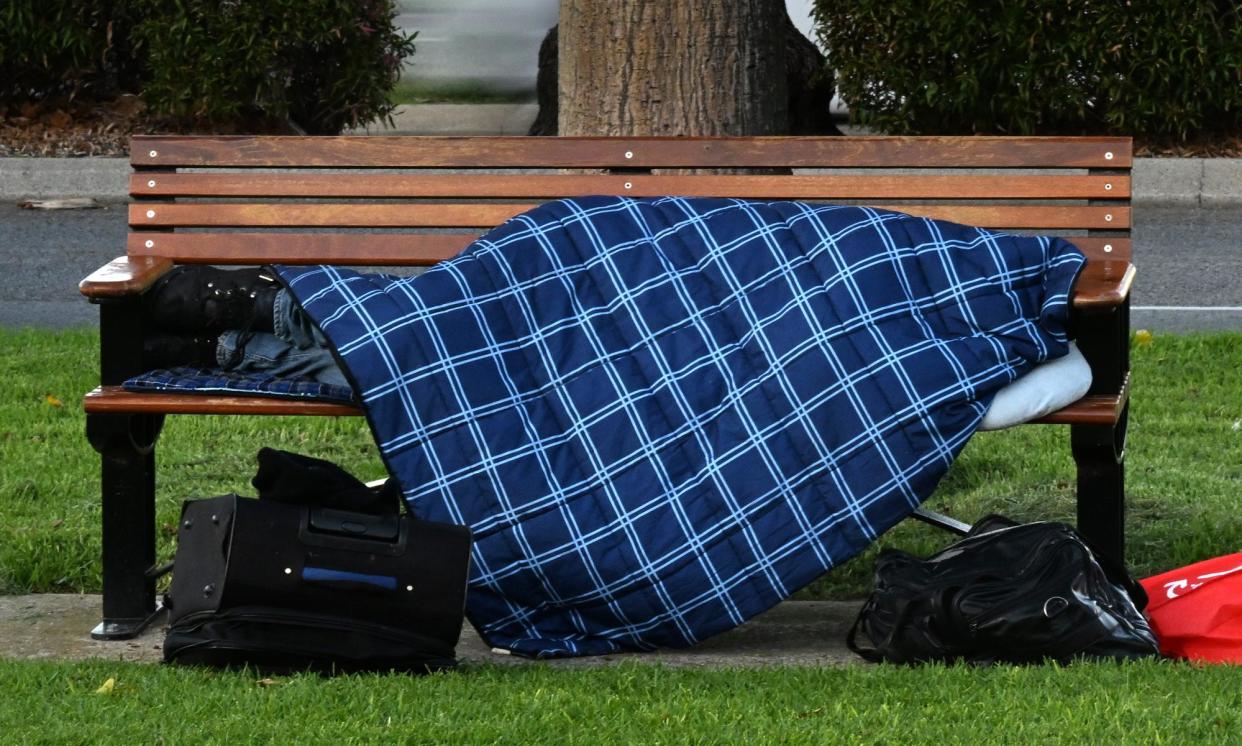South Australia considering making reporting of homelessness deaths mandatory

The South Australian government will consider a proposal to mandate the reporting of homelessness deaths. The move follows revelations that hundreds of rough sleepers are dying premature, preventable deaths.
The South Australian Alliance to End Homelessness wrote to the SA attorney general, Kyam Maher, this week urging him to follow New South Wales and consider a proposal for the mandatory reporting of homelessness deaths to the coroner.
The letter cites a recent Guardian investigation that examined 627 deaths and found an average age of death of 44, more than 30 years lower than the general population.
In many cases, the deaths exposed systemic failures across the justice, health and housing sectors. They were also largely invisible, because no government in the country bothers to count the deaths of rough sleepers and others experiencing homelessness, setting Australia apart from other jurisdictions, like the United Kingdom.
Related: Rough sleepers dying ‘alarmingly’ premature deaths, Sydney homeless data shows
“These deaths are in circumstances that are often violent,” the alliance wrote. “The people are dying deprived of their dignity and most disturbingly, they are often dying unnecessarily from easily treatable illnesses and injuries.
“As noted by the Guardian, deaths currently notified to a coroner of people who have experienced homelessness are a vast undercount because deaths are only reported to the coroner in limited circumstances, and homelessness is rarely routinely documented.”
The alliance proposed a simple change to the SA Coroners Act making it mandatory for police and other authorities to report the death of someone experiencing homelessness to the coroner. This would give visibility over most – but not all – deaths.
“Whilst our understanding of why homelessness occurs has improved over time, the exclusion of mandatory recording of homelessness deaths to the coroner has left a concerning gap in efforts to protect some of our state’s most vulnerable,” the letter said, co-signed by the alliance’s national chief executive, David Pearson, and the SA director, Liv Carusi.
“In line with the representations that have been made in a number of other states, the South Australian Alliance to End homelessness is urging the South Australian government to make a minor amendment to the Coroners Act stipulating that the death of a person experiencing homelessness is reportable to the coroner.”
A spokesperson for the SA government confirmed it would examine the proposal, saying: “The government will consider the suggestion in consultation with the coroner.”
Last month, the NSW housing minister, Rose Jackson, confirmed her government was considering mandatory reporting reforms.
The Australian Medical Association has backed calls for improved reporting of homelessness deaths, and the federal housing minister, Julie Collins, has said she will continue to talk with her state and territory colleagues about improved data collection and reporting as her government develops a new housing and homelessness agreement.
Related: Homeless Australians are dying at age 44 on average in hidden crisis
Collins described the deaths of those experiencing homelessness as “completely unacceptable”.
The monitoring of homelessness deaths has so far been conducted at a local level only, by researchers and academics.
In a recently published paper, Prof Lisa Wood, who heads the Home2Health team at the University of Notre Dame, and colleagues Dr Matthew Tuson and Shannen Vallesi examined 360 deaths in Perth and found a median age at death of 50 years, three decades below the standard.
“The ongoing poor health and premature death of people who have experienced homelessness are indictments on our society,” the paper, published in the British Medical Journal, said.
“Timely, verified data on homeless mortality are important for galvanising action and accountability, and targets should be set to reduce the observed three-decade life expectancy chasm.”


